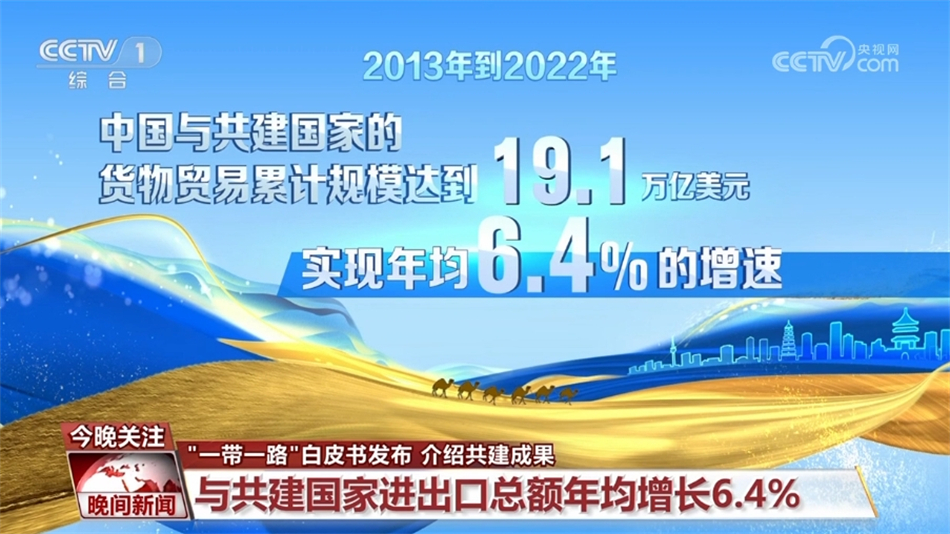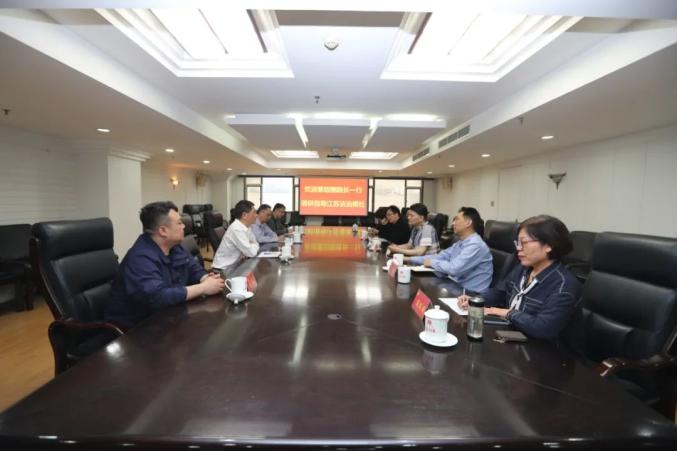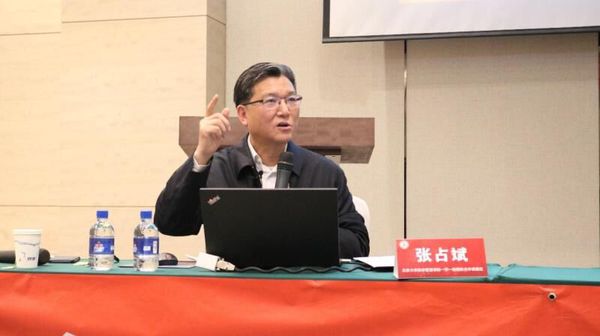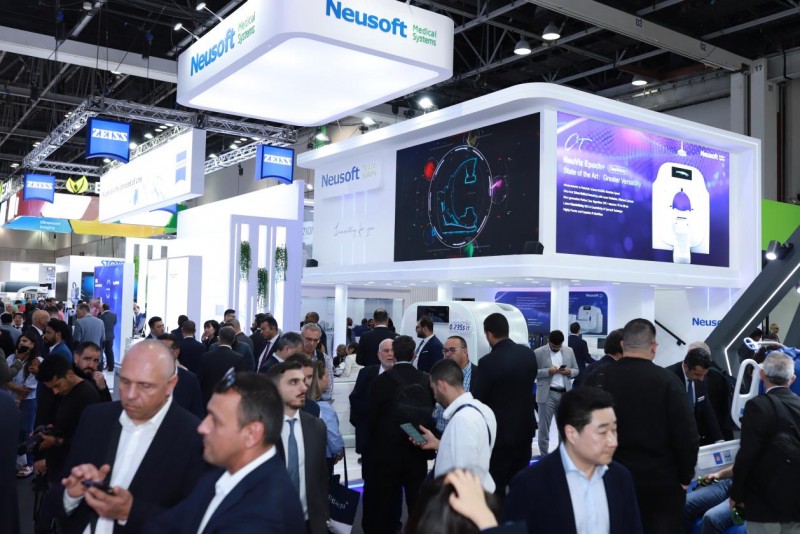The Local Currency Swap Agreement Is Showing Results: RMB Has Become A Trusted Choice, And Internationalization Welcomes Key Opportunities
The Local Currency Swap Agreement Is Showing Results: RMB Has Become A Trusted Choice, And Internationalization Welcomes Key Opportunities
In recent years, the US dollar's "hegemonic halo" seems to have faded a bit - central banks of various countries have held on to gold and used real gold and silver to cast a "vote of no confidence" in the US dollar. That: When the U.S. dollar is no longer the only “hot potato”, the renminbi is on the international stage
In recent years, the US dollar's "hegemonic halo" seems to have faded a bit - central banks of various countries have held on to gold and used real gold and silver to cast a "vote of no confidence" in the US dollar. Then: When the U.S. dollar is no longer the only “hot potato”, can the RMB absorb this wave of trust on the international stage? The answer lies in a seemingly ordinary financial newsletter in September this year.

From September 7 to 8, 2025, our central bank quietly did a big thing: it renewed bilateral local currency swap agreements with the European Central Bank, the Swiss National Bank, and the Hungarian National Bank. These three companies are not just for fun - the European Central Bank controls the purse strings of the entire euro zone, Switzerland is the "stabilizer" of global finance, and Hungary is a key node of our "Belt and Road Initiative" in Central and Eastern Europe. Being able to get these "financial big guys" to nod to renew the contract is in itself the most tangible vote of confidence in the RMB. And you know what? As of May 31, 2025, we have signed similar agreements with the central banks of 32 countries or regions. This is not a piecemeal cooperation, but a big game of RMB internationalization.
Some people may want to ask: What is this "bilateral currency swap agreement"? It sounds very professional, but in fact, to put it bluntly, it is a "currency version of mutual assistance." The two central banks agreed to exchange an equivalent amount of money at a fixed exchange rate for a period of time, and then return the principal at maturity, with some interest. A bit convoluted? Just give me an example you can touch and understand.
Suppose that at the beginning of 2023, your company sends you on a business trip to Argentina for three years, and you have 100,000 pesos in hand that you want to exchange into pesos; coincidentally, a colleague from the Argentine branch is coming to China, and you also have 2.56 million pesos in hand that you want to exchange into renminbi. If you go to the bank to exchange, both of you will have to pay for it - handling fees, exchange rate spreads, it all adds up to a lot of money. But if you make a private agreement: at the current exchange rate of 1:25.6, you give him 100,000 yuan, and he gives you 2.56 million pesos, and he will exchange the principal back after three years. In the past three years, you used pesos to buy beef and drink red wine in Argentina, while he used renminbi to shop online and manage finances in China. He didn’t have to spend any extra money. Isn’t this really worry-free? This is the simplest logic of currency swaps.
At the national level, this matter is even more significant. The first is to save money - in the past, when doing business between the two countries, they had to first convert the money into US dollars and then into the other party's currency. Now they can settle the transactions directly in their own currencies, which can save a lot of money in exchange costs. For example, when German car companies buy batteries from China, they pay directly in RMB; when we import milk powder from New Zealand, we pay directly in New Zealand dollars. Calculated based on large transactions, even if you only save 2% of the cost, it may be a profit of millions. Secondly, it is convenient for investment - after getting the other party's currency, you can not only buy things, but also invest. For example, an Argentinian colleague may use 10,000 yuan out of 100,000 yuan to buy a Chinese fund and let the money make money; our company can also use the exchanged euros to build factories in Europe, and no longer has to worry about the risk of dollar fluctuations.
What's more important is that this money can also help with emergencies. On June 30, 2023, Argentina used the RMB exchanged from us, plus the IMF’s special drawing rights, to repay US$2.7 billion in foreign debt. You must know that Argentina's U.S. dollar reserves were about to bottom out at that time, and the RMB suddenly became "life-saving money." As this kind of operation increases, the "circle of friends" of RMB will naturally become larger and larger - from a simple currency for trade settlement to a "hard currency" capable of investment and reserve. The RMB now accounts for less than 3% of global central bank reserves, but more and more countries regard it as a "ballast stone." International think tanks predict that 30% of central banks plan to increase their holdings of RMB in the next ten years, and the proportion of reserves may triple to 6%. Think about how the U.S. dollar relied on its reserve currency status to support the bullish trend of U.S. stocks. The potential of China's assets, you can taste it carefully.
Speaking of which, your three-year term in Argentina has also expired. Your colleague should pay you back 100,000 yuan, and you should also pay him 2.56 million pesos. At this time, he must be secretly having fun - the peso has depreciated greatly in the past few years, and now 1 RMB can be exchanged for 186 pesos. If there was no exchange back then, his 2.56 million pesos can now only be exchanged for 13,000 RMB. It is difficult to drink a cup of milk tea in China. But you may be wondering: Can he get 100,000 yuan now? Don't worry, the bilateral currency swap agreement has been thought of for a long time - we allow Argentina to use resources such as soybeans, beef, and lithium mines to repay debts, which not only helps them solve their urgent needs, but also binds the industrial chain tighter. This is a true win-win.
In fact, from these agreements, we can see the "smartness" of RMB internationalization - it does not seek hegemony, but only acts as a "stabilizer." By the end of 2024, RMB has become the fourth largest payment currency and the third largest trade financing currency in the world. In commodity transactions such as Saudi crude oil and Brazilian iron ore, the proportion of settlements in RMB is increasing. In the future, as our scientific and technological strength increases, the circle of friends along the “One Belt, One Road” continues to expand, and the RMB cross-border payment system (CIPS) becomes more and more complete, the RMB will definitely be able to embark on a “non-hegemonic” internationalization path and become an important pole in the multi-currency system.
Trust in currency is never something you shout out. It is built through solid transactions and reliable agreements. Watching the RMB step by step from a "trading partner" to a "financial hard currency", I feel really proud. I wish the motherland will become stronger and stronger, and our money will become more and more "strong" on the world stage.





